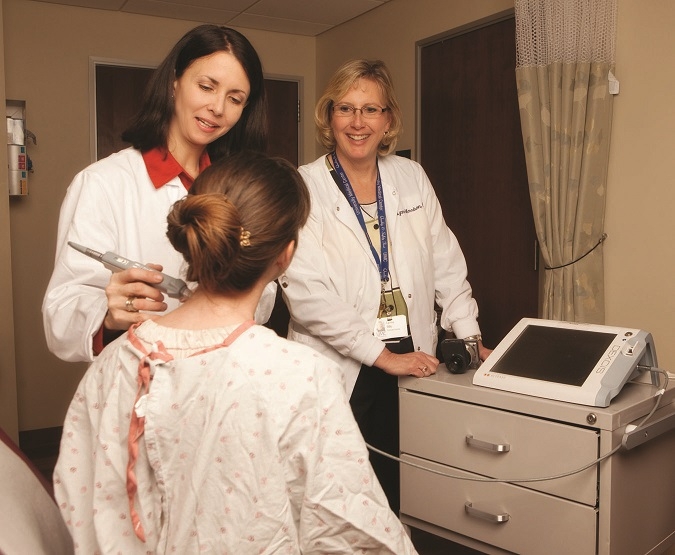Patients with melanoma, as well as those considered high-risk for melanoma are seen in the Cutaneous Oncology Program (COP). This clinic is based on a “comprehensive, one stop care” model. During a clinic visit, patients have the opportunity to be evaluated by nationally and internationally known experts such as:
- Dermatologists who specialize in suspicious lesions.

- Medical oncologists who manage and treat advanced skin cancers.
- Surgical oncologists who evaluate and excise suspicious lesions.
- Dermatopathologists who assess tissue slides of possible cancerous lesions.
- Dermatology nurses who provide continuity of care for patients.
- Mohs surgeons and an on-site surgical suite and laboratory for out-patient lesion removal.
- Head and neck surgeons (ENT) who specialize in advanced skin cancers.
- Social workers who can provide resources and psychosocial care when needed.
The COP also serves as a referral center for the management of nonmelanoma skin cancers, including:
- Squamous cell carcinomas in immunocompetent and immunosuppressed patients
- Merkel cell carcinoma
- Cutaneous lymphomas, including CD30 lymphoproliferative diseases
- Other epidermal, appendageal, and undifferentiated cutaneous malignancies
Continuing in the pioneering footsteps of Dr. Evan Hersh, management of malignant melanoma in all stages remains one of the COP’s areas of greatest expertise. For patients with locally advanced or metastatic disease, the widest variety of conventional and experimental treatments is available. We have extensive experience with biologic therapy, biochemotherapy and vaccines in the treatment of melanoma. The multidisciplinary strengths of our program are exploited to maximize treatment options and, most importantly, likelihood of response.


